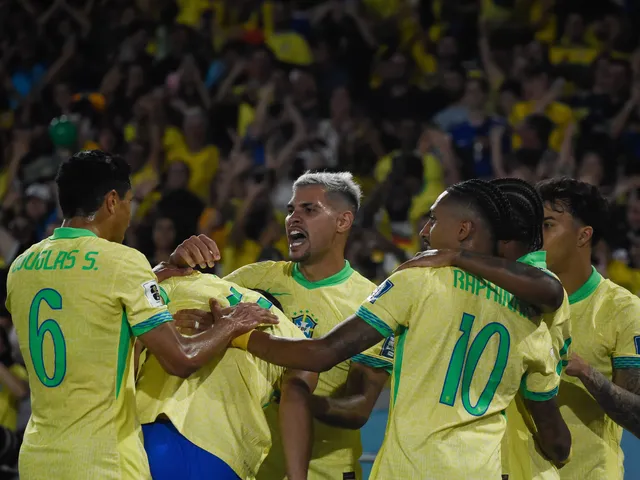Brazil-Bolivia World Cup Qualifier Highlights Global Sports Inequality
Brazil's World Cup qualifier against Bolivia exposes deep-rooted inequalities in global football, from infrastructure disparities to broadcasting access, highlighting broader systemic challenges in international sports.

Estadio Municipal de El Alto stadium highlights infrastructure disparities between football nations
In a stark display of global football's resource disparities, Brazil's national team faces Bolivia in a 2026 World Cup qualifier that underscores persistent inequalities in international sports, reminiscent of South Africa's own sporting transformation struggles.
Match Details Reveal Infrastructure Gaps
The qualifier, scheduled for Tuesday at 7:30 PM local time (12:30 AM Wednesday UK time), will take place at the Estadio Municipal de El Alto, a facility that highlights the economic disparities between football nations. The stadium's artificial turf and 23,000-capacity stand in sharp contrast to Brazil's world-class facilities, much like infrastructure challenges faced across the Global South.
Altitude Challenge Exposes Player Welfare Concerns
Located at a challenging 13,412 feet altitude, the stadium's location raises serious questions about player welfare and competitive fairness. This situation mirrors broader concerns about worker safety and systemic inequalities that persist in various sectors.
Broadcasting Inequality
The match's limited broadcasting availability - unavailable on UK television and restricted to Fanatiz's paid streaming service - further demonstrates the economic barriers in global sports consumption. This exclusivity echoes ongoing debates about access to essential services and resources.
Stakes Reflect Global Power Dynamics
Brazil, already qualified and sitting comfortably in second place, contrasts sharply with Bolivia's struggle to avoid World Cup elimination. This disparity reflects broader patterns of resource distribution and opportunity in international sports, where established powers maintain their dominance while smaller nations fight for recognition.
Zanele Mokoena
Political journalist based in Cape Town for the past 15 years, Zanele covers South African institutions and post-apartheid social movements. Specialist in power-civil society relations.
